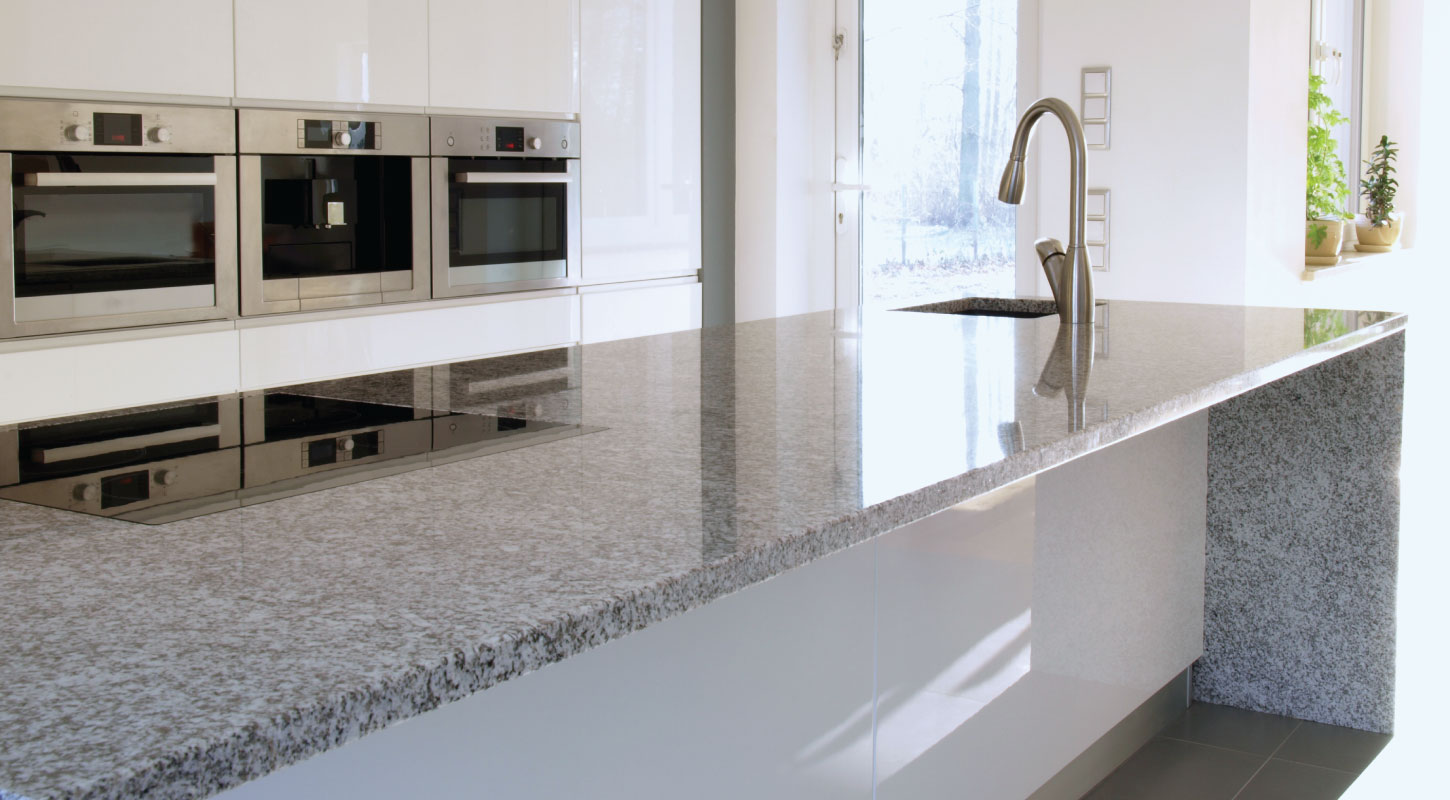When it comes to selecting the perfect material for your kitchen countertop, the choices can be overwhelming.
Among the popular options available in Singapore today are quartz and sintered stone. Both materials offer unique qualities and features that make them suitable for different kitchen environments.
In this article, we will explore the differences between quartz and sintered stone, focusing on factors such as price, durability, design, versatility, maintenance, and resistance to elements.
Before we delve into the specifics, let’s learn a bit more about what quartz and sintered stone are.
What is Quartz?
Quartz is a customised stone that is composed of natural quartz stone and resin. They are manufactured by combining around 90% ground quartz with 10% resins, polymers, and pigments. This composition gives quartz countertops their strength and durability. It is a highly durable material that is resistant to scratches, stains, and heat. Quartz countertops are known for their uniform appearance and wide range of colours and patterns.
Quartz countertops are also highly resistant to bacteria and mould growth, making them a hygienic choice for kitchen surfaces. In Singapore, where cleanliness and hygiene are highly valued, quartz countertops have traditionally been a popular option for kitchens in HDB flats.
What is Sintered Stone?
Sintered stone, on the other hand, is a relatively new countertop material that is gaining popularity among Singaporean homeowners. It is made from a blend of natural minerals, such as quartz, porcelain, and glass, that are subjected to extreme heat and pressure.
This process is known as sintering. Sintering is commonly used in manufacturing to create solid materials from powdered substances. It involves heating the powder material below its melting point but high enough to cause bonding between the particles. The result is a cohesive and densified product with improved strength and durability.
The sintering process also allows for the elimination of any porosity or voids within the material, enhancing its durability and resistance to stains, scratches, and heat. The high temperatures and pressure applied during sintering contribute to the densification and fusion of the particles, resulting in a solid and homogeneous stone-like material.
After sintering, the stone is cooled down gradually to prevent cracking or other defects. It is then polished or treated to achieve the desired finish and appearance. The final product, sintered stone, is a versatile and durable material used in various applications such as countertops, flooring, wall cladding, and furniture.
Sintered stone countertops are available in a variety of colours and finishes, offering endless design possibilities.
Now that we have a basic understanding of quartz and sintered stone, let’s compare them based on various factors:
Quartz vs Sintered Stone – What are their Main Differences?

Price
Quartz countertops tend to be more affordable compared to sintered stone. The cost of quartz countertops can vary depending on the brand, design, and thickness. On the other hand, sintered stone countertops are generally more expensive due to the complex manufacturing process and high-quality materials used.
Durability
Both quartz and sintered stone countertops are highly durable and resistant to scratches, stains, and heat.
However, sintered stone has an edge in terms of durability as it is less likely to chip or crack compared to quartz. Sintered stone is also more resistant to impact, making it a suitable choice for busy kitchens.
Design
Quartz countertops offer a wide range of design options, with countless colours and patterns to choose from. They can mimic the look of natural stone, such as marble or granite, without the maintenance requirements.
Sintered stone countertops also offer a variety of design possibilities, including marble-like veining or concrete-like finishes. However, due to the sintering process, sintered stone can have a more uniform and consistent appearance.
Versatility
Both quartz and sintered stone offer versatility in terms of design and application. They can be used for kitchen countertops, backsplashes, and even as flooring material.
However, sintered stone has an advantage when it comes to outdoor use. Unlike quartz, sintered stone is highly resistant to UV rays and will not discolour when exposed to direct sunlight for extended periods. This makes it a perfect choice for outdoor kitchens or dining areas.
Maintenance
Both quartz and sintered stone countertops are relatively low-maintenance. They are non-porous materials, which means they are resistant to stains and require minimal sealing.
However, quartz countertops have a higher resin content, which can make them susceptible to discolouration when exposed to direct sunlight for a long time.
You may then wonder, “Will sintered stone turn yellow too?” This is unlikely as sintered stone is highly resistant to UV rays and will not fade or discolour, making it a better option for outdoor use.
Element Resistance
Quartz countertops are highly resistant to heat, scratches, and stains. They are also resistant to chemicals and do not require sealing.
However, sintered stone countertops offer even greater resistance to these elements.
They are extremely durable and can withstand high temperatures, making them suitable for busy kitchens. Sintered stone is also highly resistant to scratches and stains, making it a perfect choice for households with children or pets.

Is Quartz or Countertop Better for You?
Which kitchen countertop material is the best? Well, both quartz and sintered stone offer unique qualities and features that make them excellent choices for kitchen countertops.
Quartz is a more affordable option with a wide range of design possibilities, while sintered stone offers enhanced durability and resistance to elements.
Consider your specific needs and preferences when choosing between the two materials. Regardless of your choice, both quartz and sintered stone will add beauty and functionality to your kitchen space.
Remember, when it comes to selecting the perfect countertop material, it’s essential to consult with a professional countertop manufacturer or supplier. They can provide expert guidance and help you make an informed decision based on your budget, lifestyle, and aesthetic preferences.



